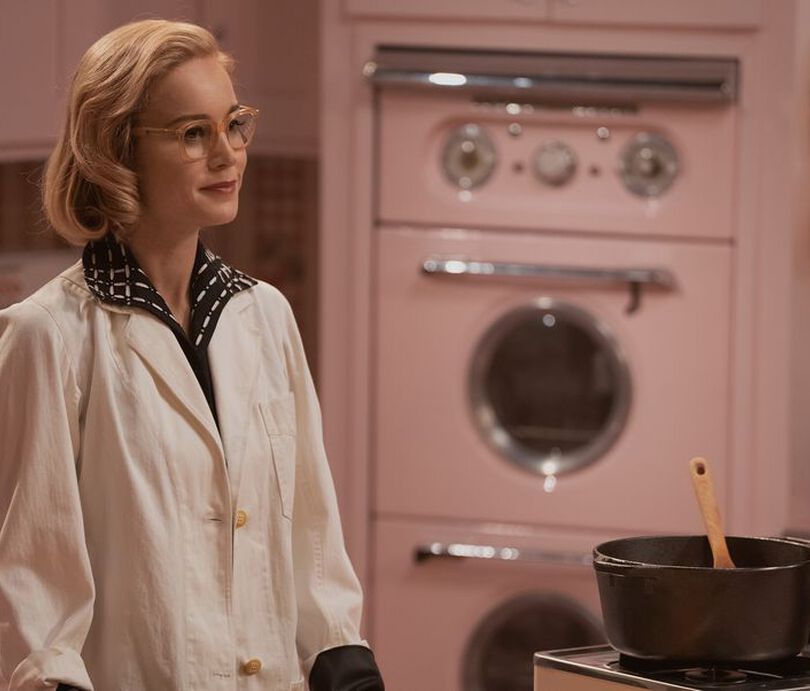
The TV adaptation of "Flirting with Disaster," based on Bonnie Garmus' bestselling novel, has captivated audiences with its colorful and engaging storytelling. While staying true to the source material, the show also makes some notable changes that add depth and nuance to the characters and their journeys.
In the novel, Elizabeth and Calvin's relationship starts off as enemies but eventually evolves into a romance. The TV adaptation adds more complexity to their relationship by including a series of encounters and deeper conversations that build trust and intimacy. The chemistry between the actors, Brie Larson and Lewis Pullman, is palpable and adds an extra layer of charm to their on-screen dynamic.
In the novel, Calvin's tragic accident is caused by slipping on oil and hitting his head. In the TV adaptation, his accident is changed to being hit by a bus while out for a run. While the details of the accident differ, the impact on Elizabeth and the emotional aftermath remain consistent.
In the novel, Elizabeth's pregnancy is unplanned and leaves her unprepared for this major life event. The TV adaptation adds a twist by introducing a pregnancy test called the frog test, which is not present in the book. This adds another layer of tension and uncertainty to Elizabeth's journey as she navigates the challenges of motherhood.
One of the most significant changes in the TV adaptation is the character of Harriet Sloane, who is rewritten as a young, ambitious black woman with two children. This change adds a new dynamic to the story and explores themes of race, community, and female friendship in a more nuanced way.
The TV adaptation delves deeper into Elizabeth's career struggles and her eventual opportunity to host a cooking show. It highlights the sexism she faces in the workplace and her determination to succeed in a male-dominated field. The show also emphasizes the importance of Elizabeth's cooking as a form of empowerment and self-expression.
The TV adaptation introduces a storyline involving the planning of a freeway that threatens Elizabeth and Harriet's community. This conflict adds an additional layer of tension and social commentary to the narrative, highlighting the racial disparities and injustices of the time.
The TV adaptation gives voice to Six-Thirty, the dog, through a voiceover provided by B.J. Novak. This creative choice adds a unique perspective to the story and allows for a deeper exploration of the dog's character and emotions. It also provides insight into Six-Thirty's role in Elizabeth and Calvin's lives.
The TV adaptation changes the timeline of Elizabeth's academic journey and the reasons behind her lack of a Ph.D. In the show, she faces traumatic experiences that derail her progress, including a sexual assault by a tenured professor. This added storyline sheds light on the challenges women face in academia and the resilience needed to overcome them.
In the TV adaptation, Fran Frask, initially a source of antagonism for Elizabeth, has a character arc that leads to redemption and a closer friendship with Elizabeth. This change adds depth to the supporting cast and explores themes of forgiveness and personal growth.
The TV adaptation highlights Elizabeth's public platform as a TV host and her activism on social issues, particularly racism. It emphasizes her role as a voice for change and the struggles she faces when her views clash with sponsors and network executives.



















